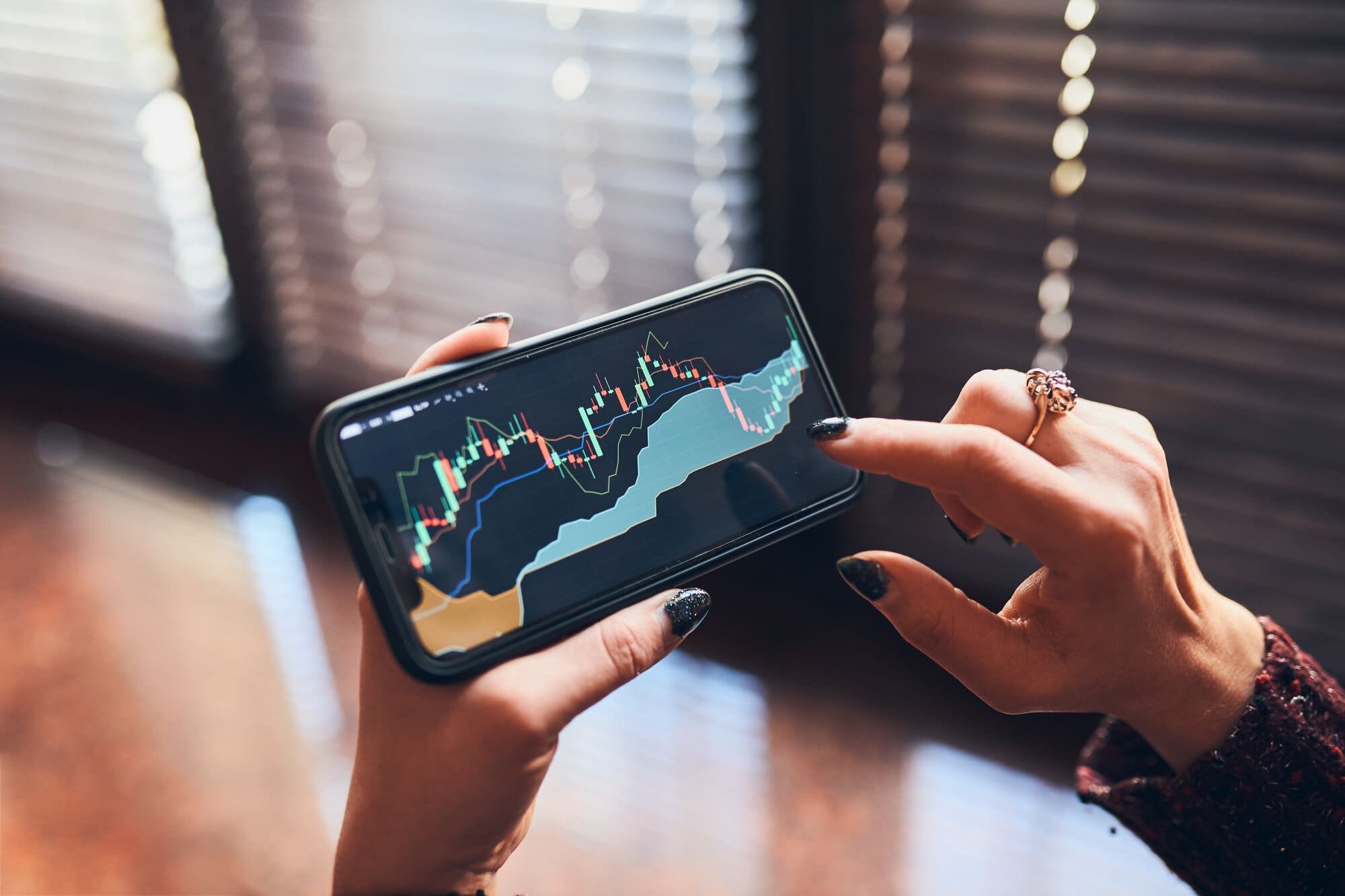
Herd Mentality and How It Affects Your Finances
It’s in our nature as humans to follow the crowd. Whether it’s eating at a crowded restaurant even if the food is overhyped while there are open restaurants next door. Waiting in a long queue at a local store to enjoy a sale discount, like the Black Friday craze. Putting your money in an investment avenue because everyone says it’s the investment to make you rich. Or doing the opposite; offloading your investment in the stock market just because the market is in a downward spiral and there’s panic-selling everywhere.
It can take many forms, but it all narrows down to one definition—herd mentality. Also referred to as crowd or mob mentality, is the tendency to follow the behavior or beliefs of others. When it comes to your finances, it can manifest through following the investment decisions of others rather than your independent analysis of the investment opportunity.
Herd mentality bias is one of the common behavioral biases that can affect your finances. Its effects can be far-reaching and have often made many investors lose their life savings and much more. Here’s what you need to know about it, its effects on the broader market and your finances, and some examples.
Effects of Herd Mentality on the Market
Herd mentality exposes not just individuals but the broader market to significant risks. Here are the common effects of herd mentality on the market;
Increased Market Volatility
Herd mentality contributes to increased market volatility. When investors collectively rush into or out of investments based on popular trends rather than underlying fundamentals, the resulting demand fluctuations can cause dramatic price swings. This volatility can also a a catalyst for further speculative trading, trapping investors in a cycle of reactive decision-making.
Increased Risk of Investment Bubbles
The increased collective movement toward a certain investment asset or sector can inflate investment bubbles. This refers to high asset prices that far exceed the asset’s intrinsic value. While these bubbles might grow over time, are naturally unstable and risk sudden bursts. Remember the dot-com bubble?
Unfortunately, investors caught up in the aftermath of a burst market bubble may face significant losses, especially if their investment strategy lacks diversification or is heavily weighted towards the overvalued assets.

How Herd Mentality Affects Your Finances
Following the crowd, even when it comes to money decisions, is not without risks. Here’s your herd mentality bias can affect your financial success;
Misalignment With Your Financial Goals
If you have a financial plan in place, it already highlights what actions to take and when. For example, your investment plan section should state what investment assets to buy, how much risk you’re willing to take, and when to exit the market.
However, if you follow a herd mentality, you are more likely to make financial decisions that do not align with your financial goals. Investment choices driven by the crowd’s movements may not fit your risk tolerance, investment horizon, or financial objectives.
This misalignment can result in portfolio imbalances, where the pursuit of short-term gains detracts from the achievement of long-term financial stability and growth.
Financial Losses
One of the most direct ways herd mentality affects your finances is through investment decisions. Following the crowd can lead to entering or exiting the market based on prevailing trends rather than underlying fundamentals.
This behavior can lead to buying at peaks and selling at troughs, resulting in suboptimal investment performance and potentially significant financial losses.
Opportunity Costs
Opportunity cost is the potential gains you forgo from missing an opportunity when you choose an alternative option. For instance, if investment ‘C’ had better returns than investment ‘A’ but you still chose ‘A’. The missed returns you’d have enjoyed from investment option ‘C’ is the opportunity cost.
When herd mentality bias gets into the picture, you may overlook unique opportunities better suited to your financial situation and goals. Following a popular investment trend will keep you from discovering undervalued or innovative investment strategies that might offer higher returns or better diversification benefits.
How to Recognize Herd Mentality in Your Investing Behavior
Fortunately, it’s possible to overcome your behavioral biases, including herding mentality. However, your first is recognizing that you’ve herd mentality bias. Some of the key signs to watch out for include;
Over-Relying on Popular Opinions
Do you find yourself making investment decisions based solely on the trends and tips popularized by media outlets, social networks, or peer groups? It may indicate a reliance on herd mentality.
This overreliance on popular opinion often bypasses the critical step of personal due diligence, potentially leading to uninformed financial choices.
Making Emotional Investment Decisions
Emotions play a significant role in herd mentality. Feelings of excitement or fear prompted by the actions of the masses can drive you to make hasty investments or sell-offs. Recognizing when emotions, rather than rational analysis, are dictating your investment decisions can signal the influence of herd mentality.
Check out this related read: Money and Emotions
Disregard for Individual Financial Strategy
Herd mentality may be at play if your investment decisions conflict with your previously set financial goals or strategy. This disregard can manifest as investing in assets that do not match your risk tolerance or deviating from your investment plan to chase short-term gains promoted by the majority.
FOMO (Fear of Missing Out)
A classic sign of herd mentality is the fear of missing out on the gains others are achieving. This fear can pressure you into jumping on the bandwagon, investing in assets or strategies that are currently in popularity without considering their suitability or the timing of such investments.
Lack of Diversification
Following the herd often leads to a concentration of investments in specific sectors or assets that are currently popular, overlooking the benefits of diversification. If your portfolio lacks variety because you’ve invested heavily in the latest trend, it may be a consequence of herd mentality.
Do you have a financial plan? Get my easy-to-use workbook and create your road map to financial success
How to Overcome Herd Mentality
Herd mentality can be a powerful influence, but you can develop a strong financial strategy to mitigate its impact. Here are some key steps:
Have Clear Financial Goals
Well-defined financial goals act as your money management north star. Think about your long-term aspirations, whether it’s saving for retirement, funding a child’s education, or accumulating wealth for a specific purpose. Having a clear understanding of your goals helps you choose investments aligned with those objectives.
Create a Risk-Tolerant Investment Plan
Risk tolerance refers to your comfort level with potential investment losses. A sound financial strategy considers your risk tolerance and allocates investments accordingly. This helps you navigate market fluctuations with greater confidence.
Prioritize Financial Literacy
Take the time to learn more about financial topics, including investing, and financial markets. This empowers you to make better-informed decisions about your money.
Examples of Herd Mentality and Money Loss in Kenya
I recently read a comment on one LinkedIn post that we do not invest, we speculate. Once we hear of an opportunity that brings in money, almost everyone rushes to try it with the hope of milking the heck out of it and getting rich.
This phenomenon doesn’t only happen in Kenya. But for this article, I wanted to give examples from our backyard. There are numerous examples out here, but let’s bring it close to home with some examples from Kenya.
The Quail Farming Craze
Are you old enough to remember the quail farming craze? A few success stories led to a nationwide frenzy. Prices for quail eggs soared, with promises of high returns. Investors jumped in, driving prices even higher. But when the market saturated, and demand didn’t meet the hyped expectations, prices crashed. Many were left with unsellable stock and significant losses.
The Sacco Ponzi Schemes
Next, the rise and fall of certain Saccos (Savings and Credit Cooperative Organizations) that turned out to be Ponzi and Pyramid schemes. Some good examples include Ekeza Sacco and the DECI pyramid scheme.
Promising unusually high returns, they attracted a massive influx of investors. When these Saccos couldn’t deliver the promised returns and collapsed, investors lost their hard-earned savings. A classic case of herd mentality, where the fear of missing out led many to ignore the red flags.
Real Estate Schemes
Real estate is one of the prized investment options in Kenya. It’s no wonder that a lot of people rush to land and property investment opportunities whenever one pops up. Unfortunately, some of these overhyped and over-advertised investments have been scams.
A while back, there was a crazy rush for real estate in Kenya. People were buying off-plan apartments and parcels of land without seeing the location or property being built. While some of the deals were legit, some were not and a lot of investors lost money.
FAQ
What is Herd Mentality in Finance?
In finance, herd mentality refers to the tendency of investors to follow the behavior and investment actions of other investors or a trendy investment opportunity. Such actions are usually without individual analysis of the said investment or one’s financial goals and risk tolerance levels.
How Does Herd Mentality Affect My Investments?
Herd mentality can lead to increased market volatility, inflated asset prices, and investment bubbles. For individual investors, this behavior can result in investments that are misaligned with personal financial goals, increased risk of losses and missed opportunities for diversification. It often prioritizes short-term trends over long-term stability and growth.
How Can I Recognize Herd Mentality in My Investing Behavior?
Signs of herd mentality in investing behavior include making investment decisions based on popular opinion without due diligence, emotional decision-making driven by fear or excitement, disregarding your investment strategy in favor of following trends, and a lack of portfolio diversification. Recognizing these signs is the first step toward countering the bias.
Is It Always Bad To Follow the Crowd When Making Investment Decisions?
Not necessarily. Sometimes, there may be valid reasons why a particular investment is gaining popularity. Having said that, it’s important that you do your research and ensure the opportunity aligns with your financial goals and risk tolerance. Don’t just follow the crowd.






